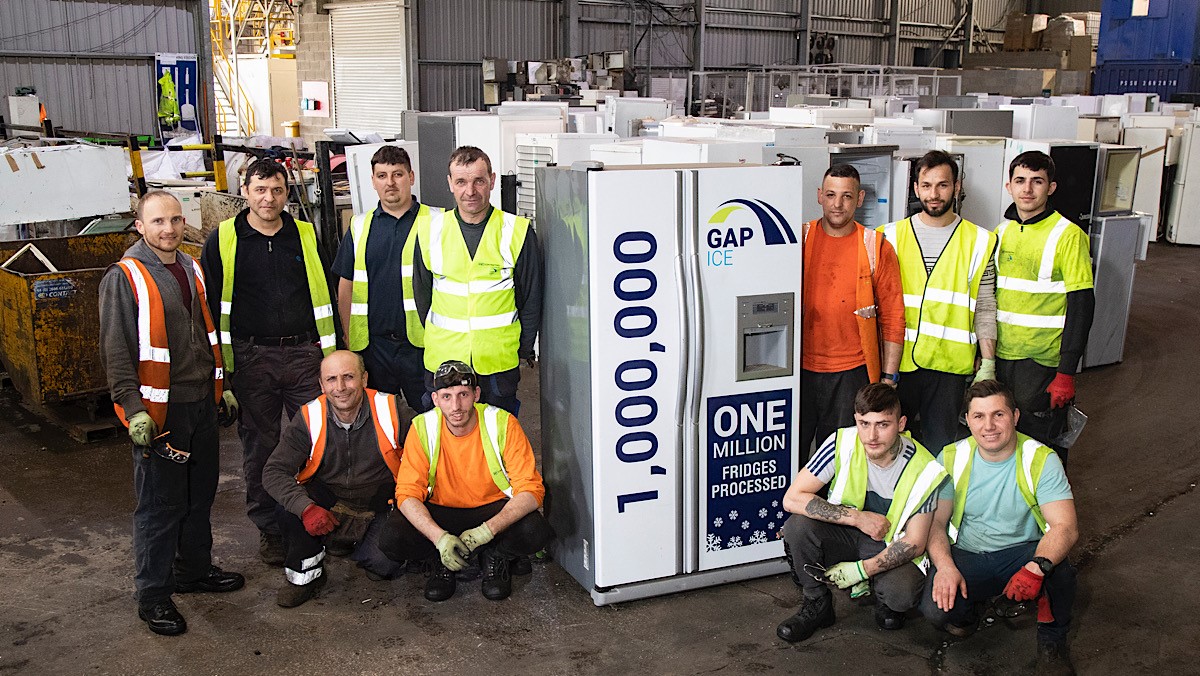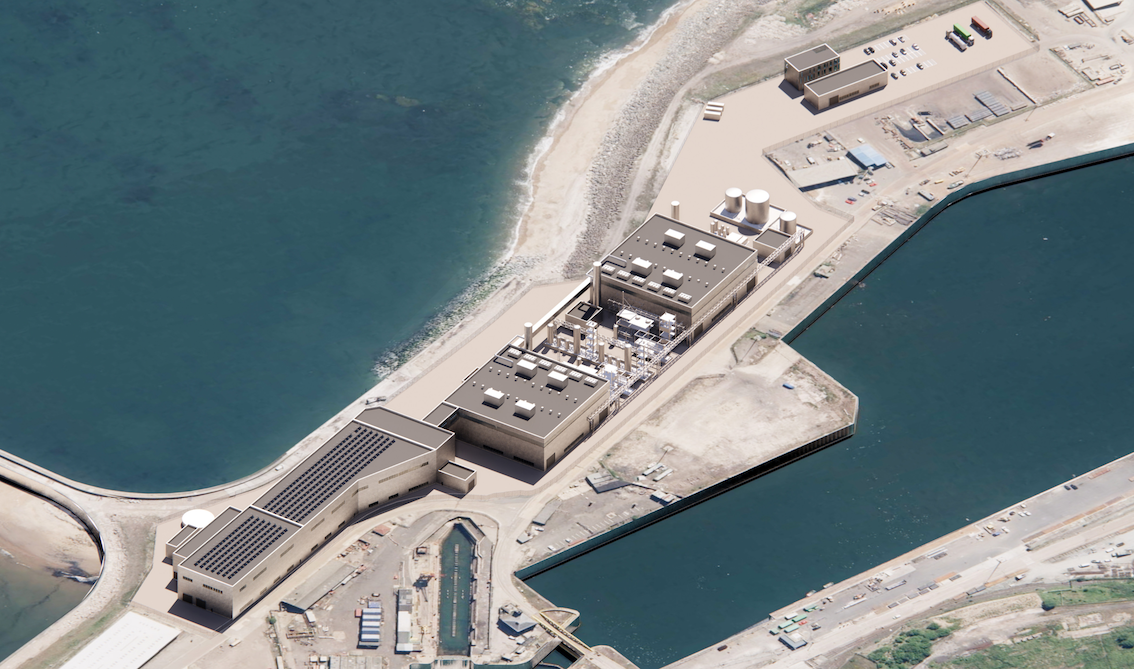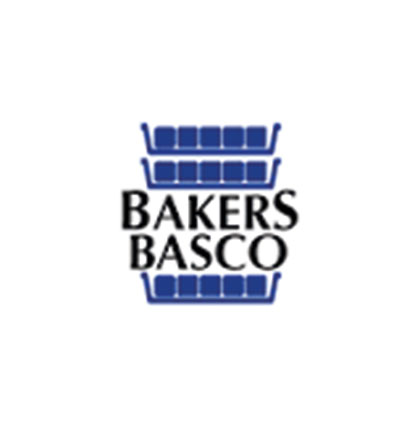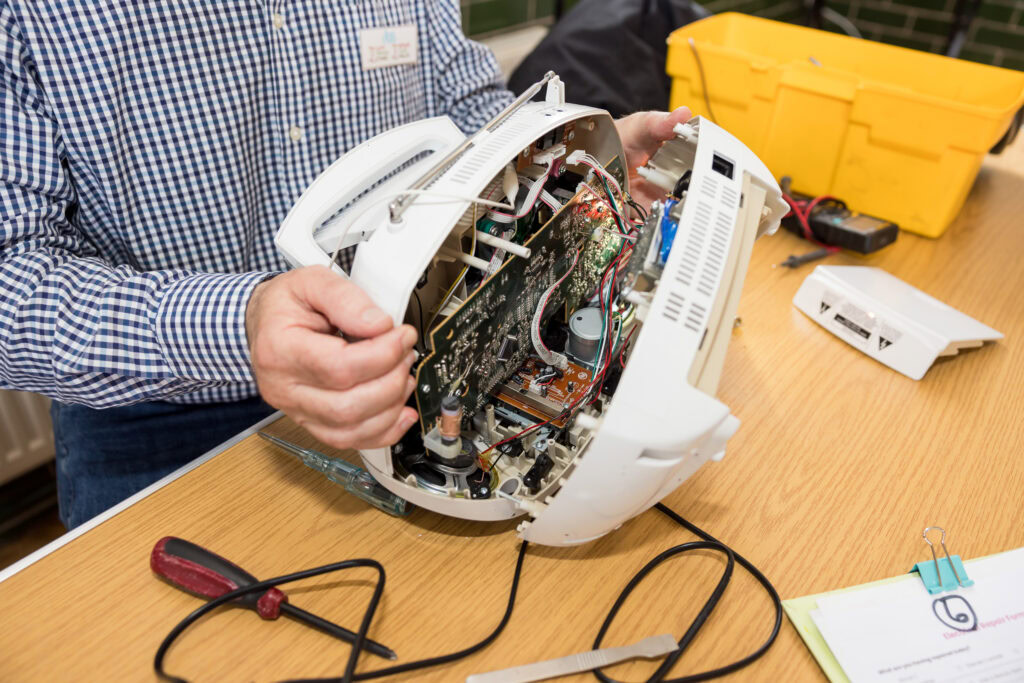Gap recycles a million fridges
North East GAP Group has announced that it has recycled one million fridges with its “innovative and sustainable” gold standard approach to electrical waste processing.
GAP says it operates Europe’s “most advanced environmentally friendly fridge reprocessing facility”, which is capable of recycling approximately 700,000 fridges a year, with plans to expand.
The Gateshead-based company said it has reached its one million fridge recycled milestone just one year after it achieved the European WEEElabex – waste electrical and electronic equipment recycling label of excellence – accreditation.

Peter Moody said: “The achievement of reaching the recycling of our millionth fridge at our Gateshead facility so soon after the plant being commissioned is a real accomplishment, and one we are extremely proud of.
“The WEEElabex accreditation and use of the best available technology is driving up standards across the entire sector. We have additional multi-million pound investment plans that will enable us to continue to play a central role in the circular economy and in turn protect the environment.”
Quantafuel applies to build ‘plastics upcycling’ plant
Norwegian energy company Quantafuel ASA announced this week (20 June) that it has submitted a planning application for its first “plastics upcycling plant” in the UK.
The processing plant is planned to be on a 12-acre site on the eastern edge of Port of Sunderland in the North-East of England.
The company said the facility will chemically recycle plastics to produce a substitute for fossil oil, reducing carbon emissions by around 50% compared to incineration.
The planning application is expected to be registered by Sunderland city council in the next few days and will then be available to view online.

Lars Rosenløv, CEO of Quantafuel, said: “New facilities are needed to help deal with plastic waste and we can offer a long-term, sustainable alternative to incineration and landfill that will provide significant environmental benefits, whilst also creating new jobs in Sunderland.
“We look forward to further engagement with the community during the summer as we await the outcome of the planning decision in autumn.”
Subject to planning permission, Quantafuel is planning to have the plastics recycling plant operational in 2024.
Lincolnshire EfW welcomes visitors
The Lincolnshire energy from waste plant opened its doors to the public last weekend (18-19 June) following a break during the pandemic.
FCC Environment said that together with Lincolnshire county council it welcomed nearly 900 visitors to site.
They were able to tour the facility, visit the control room, learn through a range of interactive exhibits and touch screen technology.
The Lincolnshire EfW facility, opened in 2013, produces energy from waste, reducing the amount of waste that Lincolnshire residents send to landfill. It can treat up to 190,000 tonnes of residual waste each year and generates up to 11.24 megawatts per hour of renewable electricity for sale to the local network. This is the equivalent amount of electricity required to power over 29,000 homes.
Bakers Basco unveils basket collection scheme
Bakers Basco announced today (22 June) that it has partnered with Allied Bakeries to recover the bakers’ own bread baskets from outside of the usual supply chain routes.
Bakers Basco was set up in 2006 by five of the UK’s plant bakers to manage the flow of millions of the industry’s bread baskets that are used for transporting bread up and down the country. The scheme manages more than 55% of the UK’s bakery basket stock.

Under the new agreement, Bakers Basco said that its National Investigations Team will report the whereabouts of any of Allied Bakeries’ own equipment that they may come across while recovering their own stock. Bakers Basco is also set take the lead on any negotiations or litigation related to the recovery of the equipment.
Richard Hodgson, director of logistics for Allied Bakeries and board director of Bakers Basco, commented: “Like Bakers Basco, we want to repatriate our equipment as efficiently as possible, saving on costs and ultimately reducing the environmental impact of equipment going missing.”
Since the introduction of new GPS tracking technologies and National Investigations Team, Bakers Basco has made significant progress in investigating and recovering equipment.









Subscribe for free